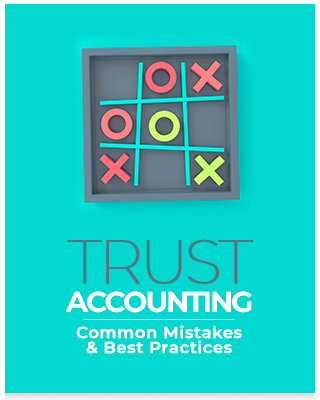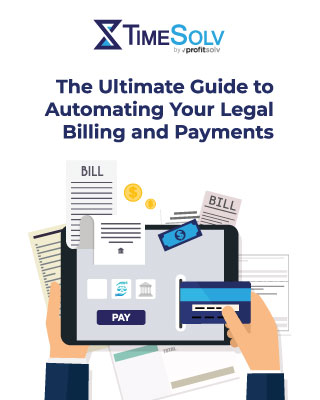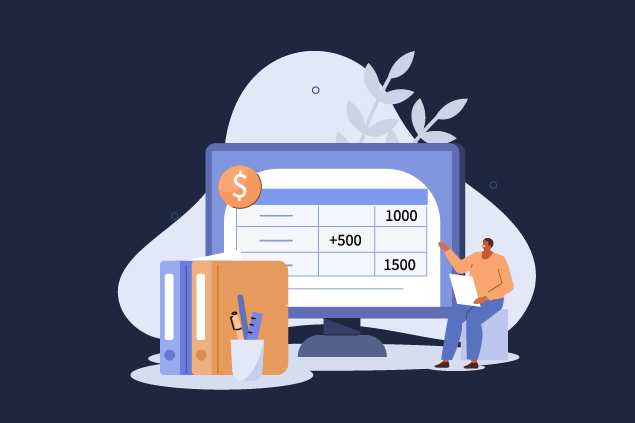If you’re running a law firm of any size, you need to be prepared to work with a variety of clients with a variety of different needs. If you want to take care of all of your clients properly, it’s essential to provide flexible payment options to accommodate their financial situations.
That includes situations where clients need options beyond the monthly pay-in-full model.
Payment plans and retainers are two common methods that can ensure clients can access your services while still providing prompt payments. But if you’re considering offering these options to your clients, it’s critical to understand the differences between these approaches so you can make the best decision for your firm and your clients.
Understanding payment plans and retainers
Both payment plans and retainers share some features in common, but they function in very different ways. Let’s take a look at the key features of both options.
Payment plans
Payment plans are arrangements that allow clients to pay their legal fees in installments over a predetermined period. This payment method is particularly beneficial for clients who may be dealing with financial constraints and prefer spreading the cost of legal fees over time.
Payment plans offer a structured and predictable approach to billing that enables clients to manage their budgets effectively and helps to ensure that legal professionals receive timely payment for their services.
Retainers
On the other hand, retainers involve a client making upfront payments to secure the services of a law firm. This upfront payment is often held in a trust and billed against the account as the firm provides legal services.
Retainers are commonly used for ongoing legal representation or for specific projects. They provide law firms with a financial guarantee and ensure a steady cash flow, allowing them to allocate resources efficiently.
The Ultimate Guide to Automating Your Legal Billing and Payments
To stay competitive in today’s legal landscape, law firms must embrace the power of technology, especially when it comes to billing and payments.
The best way to improve your law firm’s cash flow while also increasing client convenience is 'Automation'.
Download our free guide to improve your legal billing and payment process today!
Advantages and disadvantages of payment plans and retainers for clients
Offering the right payment options for your clients contributes to a better client experience. Some people might benefit more from a structured payment plan, while others might enjoy the freedom of topping off trust accounts so your team can start (and continue) working without any hassle.
To give you an idea of which payment methods will work best for specific clients, let’s walk through the advantages and disadvantages of each.
Payment plan advantages for clients
- Affordability: Provides your clients with the ability to manage their legal costs by spreading out their payments over time.
- Accessibility: Widens access to legal services for clients who might otherwise be able to afford upfront fees.
- Flexibility: Allows clients to structure their payments according to their financial capabilities.
Payment plan disadvantages for clients
- Interest: Some payment plans may include interest, which increases the overall cost of legal services for clients.
- Prolonged commitment: Some clients may find themselves committed to payments over an extended period, which could affect their financial freedom
Retainer advantages for clients
- Priority service: Clients with retainers often receive priority attention and immediate legal support. They also can rest easy knowing they’ve already secured committed legal counsel.
- Less headache: Clients who use retainers don’t need to worry about the monthly hassle of paying legal bills.
Retainer disadvantages for clients
- Upfront cost: The initial payment might be a barrier for clients with limited funds or complex financial situations.
- Unused funds: In some cases, clients may not exhaust the retainer, which can lead to unused funds.
Advantages and disadvantages of payment plans and retainers for law firms
While it’s important to have a good idea of the positives and negatives of these payment methods for your clients, it’s just as important to understand the implications of using them for your firm. Here are a few things to keep in mind when deciding on payments:
Payment plan advantages for law firms
- Increased client base: Payment plans can attract clients who may not have considered legal services because of their financial situation.
- Predictable cash flow: Establishes a consistent stream of income through scheduled payments.
- Competitive edge: Providing payment plans can give law firms a leg up in the market over other firms that don’t provide flexible payment options.
Payment plan disadvantages for law firms
- Administrative overhead: Managing multiple payment plans can be administratively demanding and take your team away from focusing on more high-value work.
- Risk of default: When working with payment plans, you take on an added risk that clients may default on their payments, which could impact your firm’s revenue.
Retainer advantages for law firms
- Financial security: Upfront payments can provide a financial cushion that allows you to allocate your firm’s resources confidently.
- Client commitment: Clients with retainers are generally more committed to the legal relationship, which can foster a strong partnership and increase opportunities for future collaboration.
Retainer disadvantages for law firms
- Administrative challenges: Properly managing trust accounts requires checking you’re always in compliance with legal regulations, which can be both time-consuming and complicated.
- Competitive disadvantage: Some potential clients may be hesitant to commit to upfront payments, which could cause them to seek out other firms with alternative payment options.
Ethical considerations
Aside from the pros and cons of using payment plans or retainers, each method comes with ethical considerations that must be upheld to ensure the highest standards of integrity and transparency.
Payment plans
If you decide to offer payment plans to your clients, you need to communicate clearly with your clients from the beginning. Provide them with detailed information about any interest rates or additional fees associated with their payment plans.
It’s also important to note that your payments must be structured fairly and non-discriminately.
Your firm should avoid any practices that could be perceived as favoritism or bias and ensure that payment plans are accessible and equitable for all clients regardless of their circumstances.
Retainers
Appropriately managing trust accounts is a fundamental ethical responsibility for law firms utilizing retainers. Proper trust accounting practices are essential to ensure you’re complying with ethical standards and legal regulations.
This involves maintaining accurate records, promptly depositing and withdrawing funds from the account, and ensuring that client funds are kept separate from operating funds. Compliance in this area is crucial to instilling confidence in clients and staying on the right side of the law.
Make payments painless for your clients and your firm with TimeSolvPay
Whether your firm decides to go with payment plans, retainers, or both, you need tools that take the heavy lifting out of managing and processing client payments.
That’s where TimeSolvPay comes in. We provide your firm with industry-leading payment processing software that allows you to:
- Get paid faster with next-day funding and online payment links
- Securely accept ACH and credit card payments
- Store client ACH or credit card information and run multiple payments with one click
- Make paying easy for your clients with a custom portal
Schedule a meeting with our team to see how TimeSolvPay can make payment processing painless.
The Ultimate Guide to Automating Your Legal Billing and Payments
To stay competitive in today’s legal landscape, law firms must embrace the power of technology, especially when it comes to billing and payments.
The best way to improve your law firm’s cash flow while also increasing client convenience is 'Automation'.
Download our free guide to improve your legal billing and payment process today!

















